
The registered dietitian at Ann & Robert H. Lurie Children’s Hospital discussed the unknowns in terms of managing and prescribing diets for patients with epilepsy. [WATCH TIME 3 minutes]

The registered dietitian at Ann & Robert H. Lurie Children’s Hospital discussed the unknowns in terms of managing and prescribing diets for patients with epilepsy. [WATCH TIME 3 minutes]

The division chief of vascular neurology at the University of Utah discussed the individual role that clinicians and neurologists can play to increase interest in the field of neurology. [WATCH TIME: 2 minutes]
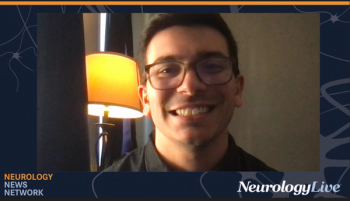
Neurology News Network for the week ending October 9, 2021. [WATCH TIME: 3 minutes]
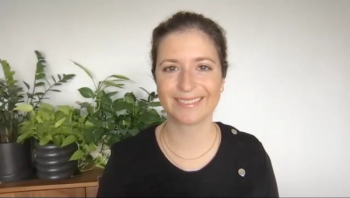
Following the publication of a recent article outlining the association of the use of anesthesia during surgery and cognitive decline in older adults, the assistant professor of anesthesiology at the David Geffen School of Medicine, UCLA, spoke on the need to assess risk factors. [WATCH TIME: 5 minutes]
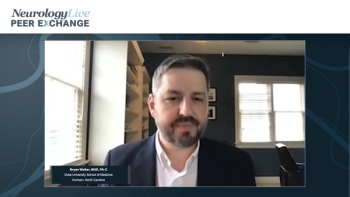
Advice and resources for colleagues, including community practitioners and neurologists, to encourage collaboration and best support for patients with multiple sclerosis (MS).

The registered dietician at Ann & Robert H. Lurie Children’s Hospital of Chicago provided insight on the importance of educating youths with epilepsy on diets, especially in the transition stages of care. [WATCH TIME: 2 minutes]
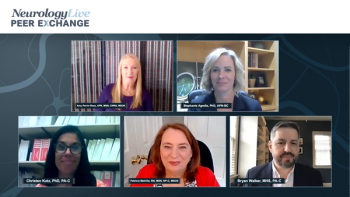
An optimistic look at the future management of multiple sclerosis (MS) based on newer treatment options and ongoing research in the field.

The assistant professor of anesthesiology at the David Geffen School of Medicine, University of California–Los Angeles, discussed a recently published article that outlined an association between anesthesia during surgery and cognitive issues. [WATCH TIME: 4 minutes]
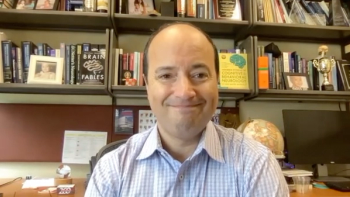
The research chair for Parkinson’s Disease and Movement Disorders at University of Cincinnati Health spoke to the current state of treatment for Parkinson disease. [WATCH TIME: 2 minutes]

The assistant professor in the division of pulmonary, critical care, and sleep medicine at the University of Washington discussed patients’ response to the use of telehealth when treating sleep disorders. [WATCH TIME: 2 minutes]
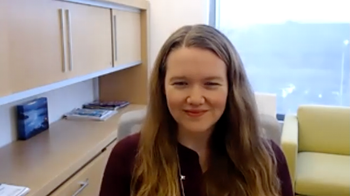
The director of the Women’s Alzheimer’s Movement Prevention Center at Cleveland Clinic discussed the role genetics play in Alzheimer disease and the importance for all-women trials. [WATCH TIME: 2 minutes]

The neurologist at Wayne State University School of Medicine discussed recently published data describing inebilizumab’s role in producing rapid and sustained B-cell depletion in African Americans with NMOSD [WATCH TIME: 4 minutes]

The registered dietician at Ann & Robert H. Lurie Children’s Hospital of Chicago discussed whether epilepsy type factors into the decision to use a given dietary approach. [WATCH TIME 2 minutes]
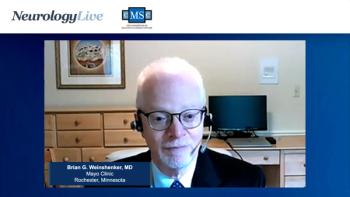
What to know about treating patients with neuromyelitis optica spectrum disorders throughout the COVID-19 pandemic.
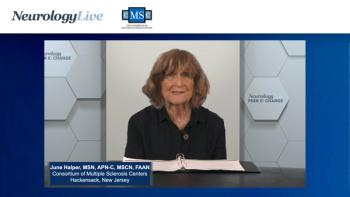
An overview of newer preventive therapies approved for acute attacks of neuromyelitis optica spectrum disorders, and variables that impact treatment selection.

The registered dietician at Ann & Robert H. Lurie Children’s Hospital of Chicago provided commentary on the multidisciplinary efforts to tailor a patient’s diet. [WATCH TIME: 3 minutes]

Following a study of patient experiences with telehealth in sleep medicine, the assistant professor in the division of pulmonary, critical care, and sleep medicine at the University of Washington shed light on the positive and negative aspects of its integration. [WATCH TIME: 4 minutes]

The assistant professor in the division of pulmonary, critical care, and sleep medicine at the University of Washington discussed key findings from a recent study on patient experience with telehealth encounters. [WATCH TIME: 3 minutes]
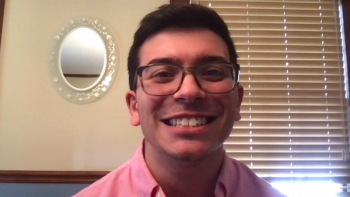
Neurology News Network for the week of October 2, 2021. [WATCH TIME: 4 minutes]

The expert medical director at Roche provided detail on results from the phase 2 PASADENA study presented at the 2021 MDS Virtual Congress. [WATCH TIME: 3 minutes]
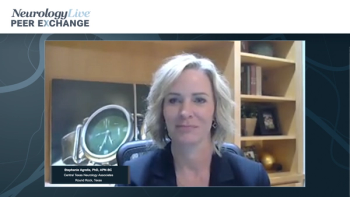
Recommendations surrounding the use of complementary and natural therapies to manage symptoms of multiple sclerosis (MS).

The investigator at the Healey & AMG Center for ALS at Massachusetts General Hospital spoke to the data backing the investigational AMX0035 in the treatment of ALS. [WATCH TIME: 3 minutes]
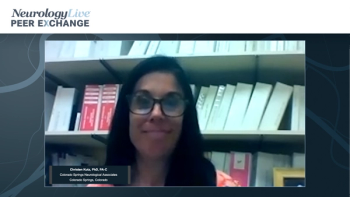
Best practices for establishing treatment plans for patients with relapse-remitting multiple sclerosis (RRMS) and making decisions to switch therapies based on inadequate treatment responses, relapse, or disease progression.

As the MS patient population includes more patients from the millennial generation, the founder and CEO of the Joi Life Wellness Group Multiple Sclerosis Center offered her insight on the way care differs for this generation compared with prior ones. [WATCH TIME: 4 minutes]

The registered dietician at Ann & Robert H. Lurie Children’s Hospital of Chicago discussed the variety of diets available to patients with epilepsy and how they differ from one another. [WATCH TIME: 3 minutes]

The physical therapist at UC Health and cochair of the International Organization of MS Rehabilitation Therapists discussed the importance of the care team for patients with MS and the role effective communication plays. [WATCH TIME: 4 minutes]
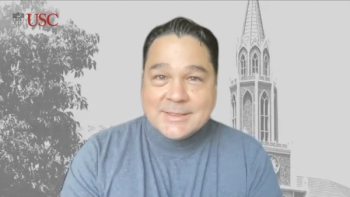
Commenting on recent advances and persistent challenges for these patients, the associate professor of clinical occupational therapy at USC Keck Hospital spoke on the need to increase equity and access to care. [WATCH TIME: 6 minutes]

The associate professor of clinical occupational therapy at USC Keck Hospital discussed the role of occupational therapists and other medical professionals in the care of these patient populations. [WATCH TIME: 3 minutes]

The associate professor of clinical occupational therapy at USC Keck Hospital discussed the growing awareness for the care of these patients, as well as the integration of occupational therapists. [WATCH TIME: 2 minutes]

With AMX0035 expected to be submitted to the FDA for review in the coming months, the investigator at the Healey & AMG Center for ALS at Massachusetts General Hospital chimed in to share her thoughts on its potential. [WATCH TIME: 3 minutes]